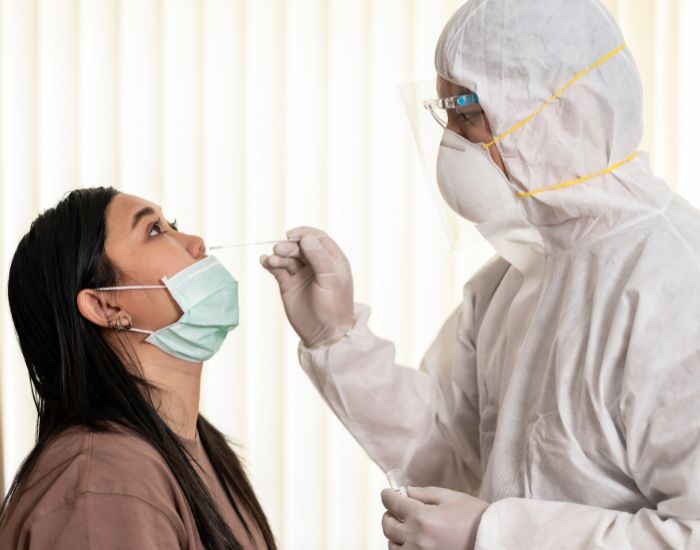The global pandemic caused by the well known coronavirus, SARS-CoV-2, has led to an unprecedented wave of research, medical breakthroughs, and public health interventions. As the virus continues to evolve, new variants emerge everyday it seems, and our understanding of its behavior deepens. One topic that has gained attention in recent discussions is whether COVID-19 could transform into another respiratory virus, specifically Respiratory Syncytial Virus (RSV). In this blog post today, we will look into the characteristics of both viruses, explore the potential for transformation, and analyze the evidence and expert opinions surrounding this intriguing possibility.
Understanding Viral Evolution
Many viruses alike are notorious for their ability to mutate and evolve over time. This phenomenon is primarily driven by genetic changes that occur during viral contractions in individuals. RNA viruses, like both COVID-19 and RSV, are particularly more likely to mutate due to the error-prone nature of the enzyme responsible for copying their genetic material. Mutations can result in new variants with altered properties, potentially affecting factors such as transmissibility, severity, and immune response. Such occurrences are why we are constantly hearing about new variants being discovered.
Comparing COVID-19 and RSV
COVID-19, caused by the novel coronavirus SARS-CoV-2, emerged in late 2019 and quickly spread worldwide. It primarily affects the respiratory system, leading to symptoms ranging from mild respiratory distress to severe pneumonia and acute respiratory distress syndrome (ARDS).
Respiratory Syncytial Virus (RSV), on the other hand, is a common respiratory virus that causes infections predominantly in young children and older adults. RSV can lead to symptoms similar to those of COVID-19, such as cough, congestion, and difficulty breathing. Severe cases may result in pneumonia, particularly in high-risk individuals.
While both viruses share some similarities in terms of respiratory symptoms, they belong to distinct viral families and have different genetic makeups. RSV is a RNA virus that stems from the Paramyxoviridae family, while SARS-CoV-2 is a novel coronavirus stemming from the Coronaviridae family. These differences contribute largely to variations in regard to how the viruses infect and affect the human body.

The Evolutionary Potential
The question of whether COVID-19 could evolve into RSV is complex and can be looked at from different ways. While viruses can undergo genetic changes that enable them to adapt to new environments and hosts, the transformation of one virus into another with vastly different properties is highly unlikely.
Viral evolution is driven by selective pressures, such as immune responses and antiviral treatments. The genetic changes that occur in a virus are usually gradual, accumulating over time. The transformation of COVID-19 into RSV would require an extensive and highly improbable series of genetic mutations that alter key viral proteins and functions.
Regardless, it is still important to remain safe and healthy. That is why My Care Labs encourages the Bay Area community to stop by our lab in Fremont for quick and easy testing. With just one swab, patients are tested for 4 different viruses simultaneously, allowing our community to be proactive against the common colds of today.
Expert Opinions and Research
Reputable experts in virology and infectious diseases have weighed in on the possibility of COVID-19 turning into RSV. Dr. Angela Rasmussen, a virologist at the Vaccine and Infectious Disease Organization, stated that such a transformation is “biologically implausible” due to the fundamental genetic differences between the two viruses. Dr. Amesh Adalja, a senior scholar at the Johns Hopkins Center for Health Security, echoed this sentiment, emphasizing that the viruses belong to distinct families with distinct genomic structures.
Scientific research also supports the idea that significant viral transformations are unlikely. A study published in the journal Nature Communications analyzed the genetic diversity of SARS-CoV-2 and found no evidence of large-scale genetic changes that could lead to a shift resembling RSV. The study concluded that the virus is well-adapted to its human host, and major changes would likely decrease its fitness.
Conclusion
When patients visit My Care Labs in Fremont, CA, they are not only being tested for COVID-19. With just one swab, patients take our gold standard combo test which simultaneously tests for COVID-19, influenza A & B, and RSV. Our combo test allows patients to be proactive against common infections.
While the evolution of viruses is an ongoing process, the transformation of COVID-19 into RSV is highly improbable based on our current understanding of virology. The genetic differences, distinct families, and specialized adaptations of these viruses make such a transition biologically implausible. While it’s important to remain vigilant and continue monitoring viral mutations, the focus should remain on preventive measures, vaccination efforts, and understanding the unique characteristics of each virus.
As we navigate these uncertain times, it’s crucial to rely on accurate information from reputable sources and experts in the field. By staying informed, we can better comprehend the specifics of viral evolution and the factors that contribute to the emergence of new infectious diseases.
Sources:
- Centers for Disease Control and Prevention (CDC). Respiratory Syncytial Virus (RSV). Retrieved from https://www.cdc.gov/rsv/index.html
- World Health Organization (WHO). Coronavirus disease (COVID-19) pandemic. Retrieved from https://www.who.int/emergencies/disease-outbreak-news/item/2020-DON264
- Rabaan, A. A., Tirupathi, R., Sule, A. A., Aldali, J., Mutair, A. A., & Alhumaid, S. (2021). Respiratory syncytial virus and COVID-19: A review. Frontiers in Pediatrics, 9, 669. doi: 10.3389/fped.2021.669629
- Su, S., Wong, G., Shi, W., Liu, J., Lai, A. C. K., Zhou, J., … & Gao, G. F. (2016). Epidemiology, genetic recombination, and pathogenesis of coronaviruses. Trends in Microbiology, 24(6), 490-502. doi: 10.1016/j.tim.2016.03.003
World Health Organization (WHO). “Coronavirus disease (COVID-19) pandemic.” https://www.who.int/emergencies/disease-outbreak-news/item/2021-DON322






